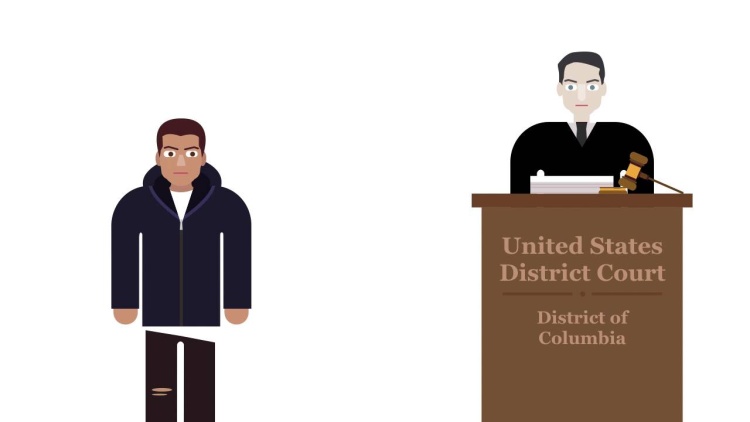United States v. Robinson
United States Supreme Court
414 U.S. 218, 94 S. Ct. 467, 38 L. Ed. 2d 427 (1973)
- Written by Angela Patrick, JD
Facts
While Willie Robinson (defendant) was driving, an officer stopped him and arrested him for driving with a revoked license. After arresting Robinson, the officer patted him down. The officer felt a lump that the officer knew was not a weapon. The officer then put his hand in Robinson’s coat packet and pulled out a cigarette pack. The officer opened it and saw what he recognized as heroin. Robinson was indicted for possession of heroin. Robinson moved to suppress the heroin evidence, arguing that the officer had unconstitutionally searched his pocket and the cigarette pack without probable cause to believe that the search would yield evidence or a weapon. The district court denied the motion, reasoning that the arresting officer’s search of Robinson’s pocket and the cigarette pack was a valid search incident to arrest and, therefore, an exception to the Fourth Amendment’s probable-cause and warrant requirements. The heroin was admitted into evidence, and the jury convicted Robinson. The United States Court of Appeals for the District of Columbia Circuit reversed Robinson’s conviction, ruling that the arresting officer’s search of Robinson’s pocket and subsequent search inside the cigarette pack each exceeded the scope of a lawful search incident to arrest. The court reasoned that there was no reason for the officer to believe that these locations held either (1) a weapon or (2) evidence related to the revoked-license offense for which Robinson had been arrested, which were the two traditional grounds for allowing warrantless searches incident to an arrest. The United States Supreme Court granted certiorari.
Rule of Law
Issue
Holding and Reasoning (Rehnquist, J.)
Concurrence (Powell, J.)
Dissent (Marshall, J.)
What to do next…
Here's why 904,000 law students have relied on our case briefs:
- Written by law professors and practitioners, not other law students. 47,100 briefs, keyed to 995 casebooks. Top-notch customer support.
- The right amount of information, includes the facts, issues, rule of law, holding and reasoning, and any concurrences and dissents.
- Access in your classes, works on your mobile and tablet. Massive library of related video lessons and high quality multiple-choice questions.
- Easy to use, uniform format for every case brief. Written in plain English, not in legalese. Our briefs summarize and simplify; they don’t just repeat the court’s language.





